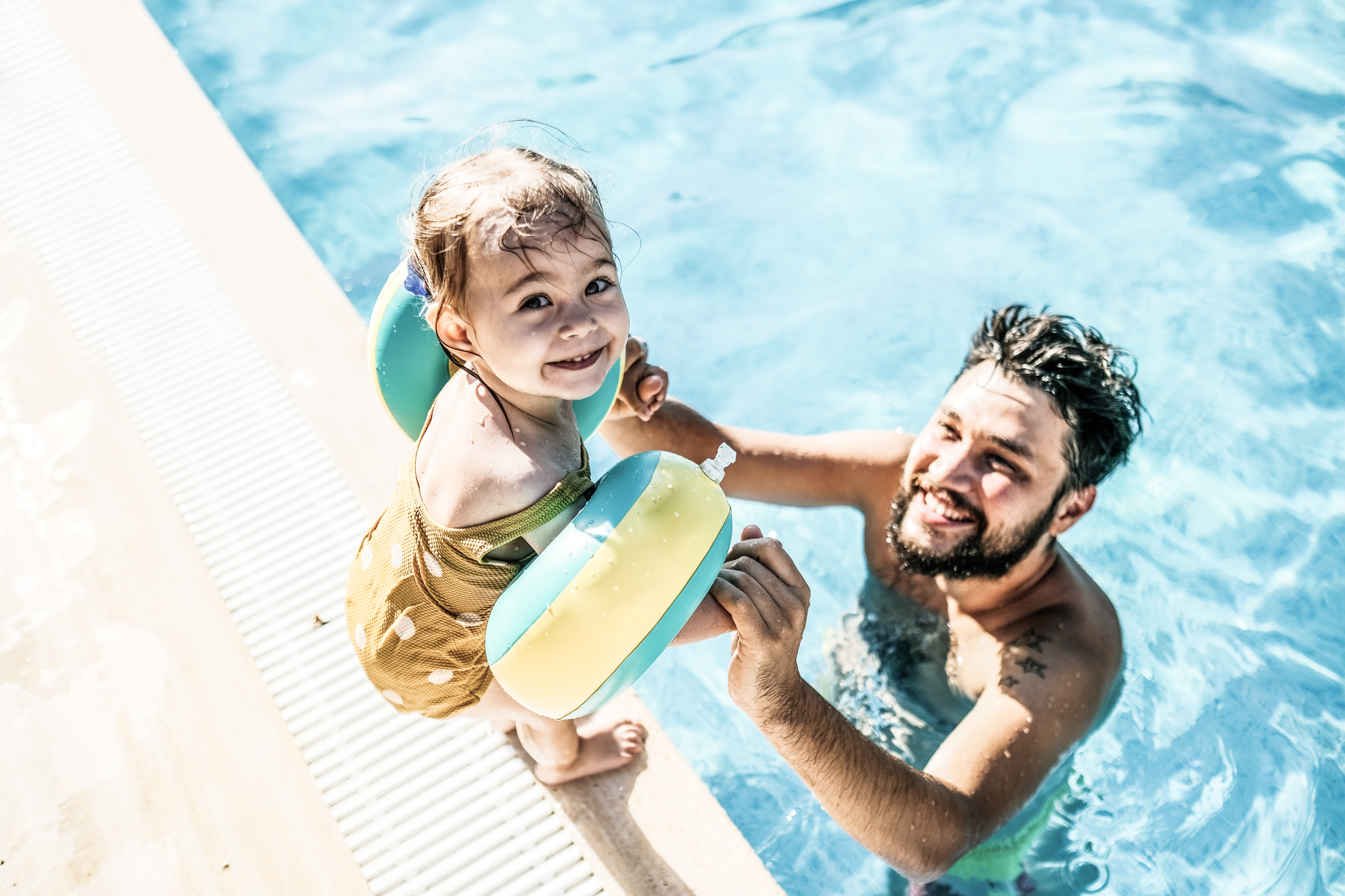By: Maria Baumgartner, MD | Family Medicine Resident
It feels second nature to reach for SPF 30 sunscreen to keep ourselves and our families safe from the sun’s harmful UV rays. Most of us are familiar with the dangers that too much sun can cause – skin damage, eye damage and skin cancer. There are other dangers to be aware of as well this summer– water! We hope is that this article will help make practicing safe water habits also second nature.
Let’s chat about some simple tips and tricks that can keep your family safe this summer – whether at home or on vacation!
Let’s dive into the topic of water safety
These facts below are not easy to talk about, but I would like to make you aware because awareness is the key to saving lives!
- Did you know that babies most often drown in buckets, toilets, and bathtubs? Young children should never be left unattended in the bathroom even if they appear to be maintaining without assistance.
- Drowning can occur within seconds in just two inches of water.
- Of those that survive the drowning, 5-10% are left with long-term disability due to severe brain damage.
What can we do as adults to keep our kids safe?
Although the youngest have the most supervision around water, toddlers are the age group which have the most accidental drownings – with 69% of all drownings occurring with children under the age of four. What typically happens, is that toddlers sneak away from watchful eyes, and find themselves unsupervised with access to water.
- Supervise children around any water source – even in the bathroom. Bathtubs can be lined with plastic bathmats that suction to the tub to prevent slips, and toilets and/or bathrooms should have child lock devices to prevent entry.
- Consider swimming lessons at a young age. Children can start swim lessons as early as one year old – and it’s fun! All children are different, so when you’re deciding if your child is ready to start swim lessons, ask your family physician.
- Avoid consuming alcohol when you have an active role in watching children. Impaired judgment and/or slow response time can make a huge difference if something goes wrong.
- If you’re a pool owner or have a spa at home, they should be fenced in for safety. When installing a fence around water, it should be at least four feet tall. When choosing a gate, choose one that is self-closing and self-latching. Having a pool alarm would be ideal! Don’t forget that pools tend to be filled with floaties, noodles and toys which attract small children to reach out and try to grab them. After a day in the pool, be sure to clean out anything that is floating or sitting on the bottom of the pool.
Let’s talk about drains!
Pool drains are easily overlooked. Drains have strong suction systems, and it is easy for small appendages to become trapped. Child water wings or arm floaties can easily slip off the arms and can puncture easily. These devices keep children’s arms from being able to move freely and can inhibit the child’s ability to learn to swim properly.
Lake Lanier Safety
We are lucky to have Lake Lanier in our backyard. As fun as it is, it does pose unique dangers. Always have your children wear a life jacket, have constant supervision and stay in designated swimming areas.
- Water wings, noodles and inner tubes are not life preservers! These are toys and not designed for water safety. As children are jumping from docks, boats or water edges, it is important to teach them to jump feet first rather than headfirst as the depths of water are unpredictable and there may be hidden objects below the surface. Make sure to check if there are signs posted about the area, and it’s a good idea for an adult to conduct a test swim to check things out.
- This goes without saying, don’t swim alone – whether you’re an adult or adolescent. Use the buddy system!
- If you find yourself in a water emergency, call 911 immediately! One of the most important take home messages I’d like to impress upon you, is to become familiar with CPR. The most effective way to improve outcomes of drownings is to start CPR as soon as possible – even before calling 911, CPR should be initiated if possible. Rescue breathing and chest compressions help return oxygen to the brain and prevent brain injury and death. You can ask your family physician for resources to sign up for a free class in your community.
As more of us in the community are getting out to enjoy summer activities, these simple tips can really help keep everyone safe. Share this article with your family and friends and remind each other to pause before starting your fun summer splashes! Enjoy a safe and healthy summer!


